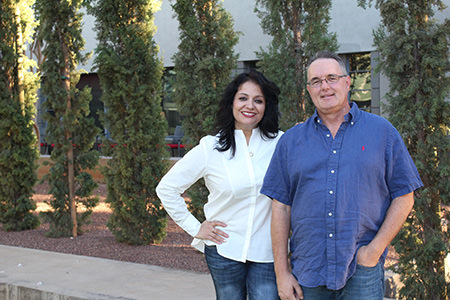
New Year. New beginnings.
Welcome, 2025!
Thinking about your resolutions and goals for the upcoming year? There’s one decision that could offer another person a second chance and leave a legacy – registering as an organ and tissue donor.
Read More
New President and CEO of Donor Network of Arizona Announced
“Every day, we have the chance to make a real difference for families, patients and our community. I’m excited to move our mission forward with a fantastic team, one life saved at a time,” said Kathy Mills, who was recently announced as Donor Network of Arizona’s new president and CEO starting in January 2025.
Read More
What does it mean to register?
The decision to register as an organ and tissue donor is a choice to share life with your fellow humans.
Join the more than 4.8 million people on the DonateLifeAZ Registry.
Read More
We are passionate, positive & eager
Donor Network of Arizona (DNA) is celebrating another huge accomplishment this year! For the third year in a row, DNA has been named a Top Company to Work for in Arizona. This recognition showcases DNA’s commitment to fostering a positive and rewarding work environment for its employees—because happier employees save more lives.
Read More
10 conversations and celebrations
There’s a lot going on this October. This month is all about starting and spreading lifesaving conversations. We’ve got 10 conversations and celebrations scheduled for the tenth month, and we need your help!
Read More
Celebrando el Mes de la Herencia Latina | Celebrating Latino Heritage Month
A lo largo del Mes de la Herencia Latina, animamos a todos a registrarse y celebrar las historias, culturas e historias de las comunidades latinas, hispanas, de trasplante y donación.
Throughout Latino Heritage Month, we encourage everyone to register and celebrate the histories, cultures and stories of the Latino and Hispanic, transplant and donation communities.
Read More
Golden hearts
Each year, more than 300,000 children are diagnosed with cancer in the world, and approximately 15,780 children in the United States.
September is Childhood Cancer Awareness Month. The observance provides an opportunity to recognize the bravery of young cancer warriors, support families impacted by childhood cancer and spread awareness.
Read More
Celebrating deaf culture
“Anyone and everyone can sign up to save lives,” says Tracey Chu, the very first deaf employee at Donor Network of Arizona (DNA)!
Tracey is also a member of DNA’s Diversity, Equity & Inclusion Committee. Through her efforts with the committee, DNA proudly recognizes Deaf Awareness Month and encourages members of the deaf community to register as organ and tissue donors.
Read More
Driving hope
Saying thank you isn’t enough. Throughout August, Arizona recognizes the lifesaving efforts of our partners at ADOT MVD, and the nation continues to appreciate motor vehicle services partners into September. We fulfill our mission in partnership with you.
Read More
The impact of multicultural donation
Come be part of our August celebration as we honor National Multiethnic Donor Awareness Month (NMDAM)! Together, we’ll champion lifesaving and life-healing acts across diverse communities by creating an inclusive culture around organ and tissue donation.
Read More
